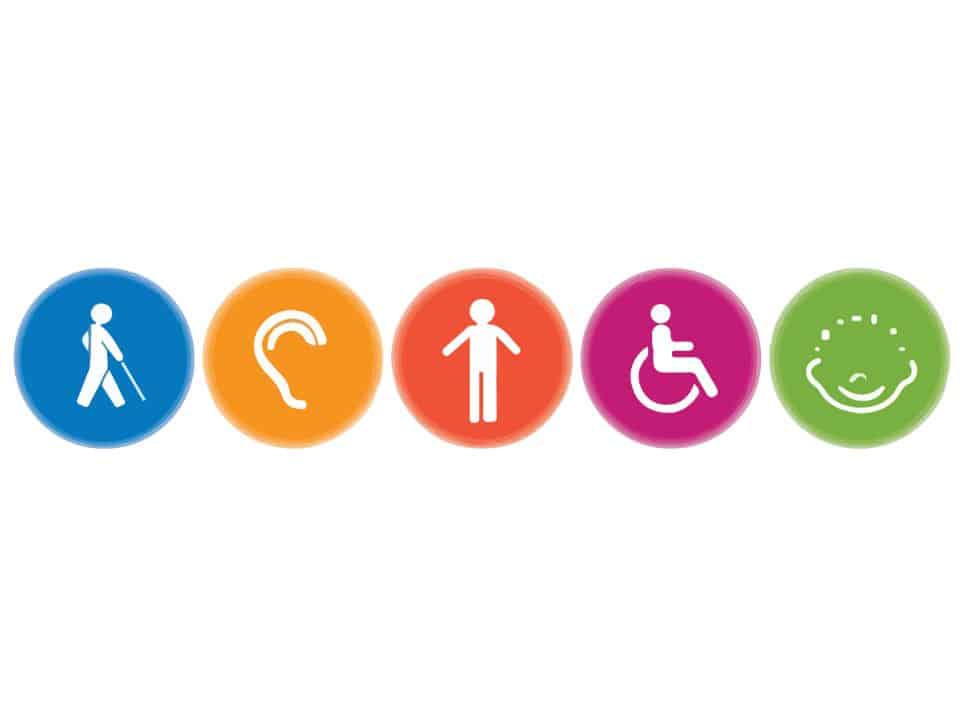In this article, we clarify how motherhood and pregnancy are experienced with a disability, and we offer advice for future moms and dads to explore the options provided by Assisted Reproductive Technologies.
According to the World Health Organization, disability arises from the interaction between a person’s health conditions and personal or environmental factors.
When thinking about disability, one often imagines a wheelchair, but there are actually multiple forms of disability:
- Physical: difficulties moving.
- Psychological: cognitive barriers affecting personal or social development.
- Communication: obstacles to speaking, seeing, hearing, or reading.
What does becoming pregnant with a disability entail?
15% of the world’s population lives with some form of disability. In the U.S., 26% of adults have a disability, and 1 in 4 women is affected. Anyone can experience a disability, temporary or permanent. (WHO, 2021)
Why is there discrimination against pregnant women with disabilities?
Despite progress in equality, a lack of awareness about the daily lives of people with disabilities leads to stigma and discrimination. Everyone has the right to access quality healthcare without distinction.
The UN Convention Article 25 guarantees the right to receive excellent medical care without discrimination.

How often do women with disabilities become pregnant?
Many women with disabilities conceive naturally since their reproductive health functions normally. Only certain conditions, like spinal cord injuries, require Assisted Reproduction.
Assisted reproduction options for women with disabilities
In cases of quadriplegia or paraplegia, natural conception is usually impossible. The most effective solutions are adapted technologies, such as:
- Artificial insemination: recommended for those under 35 with normal ovarian reserve and a partner with healthy semen parameters.
- In vitro fertilization (IVF): higher success rates, ideal for those over 35 or with reproductive challenges.
How to prepare for a pregnancy with a disability
Planning is crucial. Consult a fertility specialist before a general gynecologist if you’re considering assisted reproduction. Find inspiration in real stories like “Pregnant Together: Overcoming Infertility with Assisted Reproduction” and learn about your rights in reproductive rights and ARTs.
Recommendations during pregnancy with a disability
- Plan with your doctor: set goals and avoid self-medication.
- Seek testimonials: read experiences like “The Disabled Woman’s Guide to Pregnancy and Birth” or stories on our testimonials blog.
- Adopt new routines: adapted exercise, balanced diet, or psychological therapy, always under medical supervision.
Key questions for your assisted reproduction specialist
Before starting any treatment, ask about success rates, risks, medication dosages, and lifestyle changes. Consulting an Assisted Reproduction expert increases your chances of success.
References
- World Health Organization. (2021). Disability and health.
- Centers for Disease Control and Prevention. (2022). Disability Impacts All of Us Infographic.
- United Nations. (2006). Convention on the Rights of Persons with Disabilities, Article 25.
- Rogers, J. (2015). The Disabled Woman’s Guide to Pregnancy and Birth.
Frequently Asked Questions
1. Can I Get Pregnant with a Severe Physical Disability?
In most cases, fertility is unaffected, except for spinal cord injuries that complicate natural conception. Artificial insemination and IVF are valid options.
2. What Precautions Should I Take for a Safe Pregnancy?
Plan with your doctor, maintain a balanced diet, do adapted exercises, and avoid self-medication. Seek support networks and testimonials to feel accompanied.
3. How Do My Reproductive Rights Affect Access to Treatments?
Reproductive rights guarantee nondiscriminatory care. UN Convention Article 25 supports your access to comprehensive reproductive health services.
4. Which Technique Has the Highest Success Rate?
IVF typically offers better results, especially for those over 35 or with risk factors. Artificial insemination is less invasive and suitable for younger cases with good ovarian reserve.
Remember: every case is unique. Always seek guidance from an Assisted Reproduction specialist to receive the best support and increase your chances of success.

